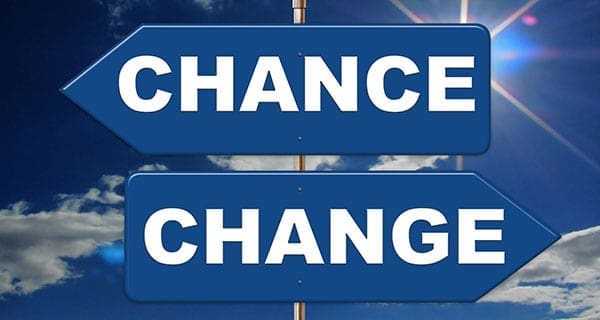 “Each time a man stands up for an ideal, or acts to improve the lot of others, or strikes out against injustice, he sends forth a tiny ripple of hope, and crossing each other from a million different centres of energy and daring, those ripples build a current that can sweep down the mightiest walls of oppression and resistance.”
“Each time a man stands up for an ideal, or acts to improve the lot of others, or strikes out against injustice, he sends forth a tiny ripple of hope, and crossing each other from a million different centres of energy and daring, those ripples build a current that can sweep down the mightiest walls of oppression and resistance.”
– Robert F. Kennedy
Anyone who has been involved in sports for any length of time has seen examples of sport at its best. That means sport minus the win-at-all-costs and profit-at-all-costs ethos that diminish the sporting experience.
Witnessing sport at its best – even if it’s only for a fleeting moment – gives one hope. And hope is what drives the idealist. Idealism, in turn, is what drives sports reformers.
Sports reformers believe that just because a certain policy represents the way we’ve always done things in sports – or the way we currently do things – doesn’t mean it’s the best way.
Sure, effective sports reformers are also pragmatists. Pragmatism is required to get things done. But it’s reformers’ idealism, not pragmatism, that drives them to keep working to improve the world of sports.
Critics will say idealists aren’t practical, that their goals aren’t achievable. But idealists make the best leaders and change agents. They grab our hearts and inspire us to action.
If you want to be inspired, talk to a change agent – in any field. Change agents are idealists who believe there’s a better way – and then act on that belief.
Change agents have a vision of what they want to see. They don’t know how they’re going to get there but they keep following that vision, despite setbacks and criticism along the way.
As momentum toward achieving the idealist’s vision builds, more pragmatists will come on board to fight for a righteous cause, and to help achieve goals and milestones. But it’s the idealists who will spur them to action.
If the sports world is to become a better place, more change agents are needed to take part in determining what sport represents in our culture.
We need more people who care deeply about civil rights, and social and economic justice in sports. We need more people who are passionate about sportsmanship and ethical issues in sports. We need more people who believe in equal opportunity in athletic endeavours. We need more people who want to fight for safer playing conditions, especially when it comes to brain trauma in sports. And we need more people who want to make sure there’s more youth than adult egos in youth sports.
That’s just the short list. There are many more sports issues out there that a person can become involved with.
I believe Martin Luther King Jr. was right when he said, “The arc of the moral universe is long, but it bends toward justice.” But it doesn’t bend on its own. It happens because people are courageous enough to fight for the higher principles of justice, even when their views might be in the minority. They firmly believe they will end up on the right side of history.
Ultimately, change comes from grassroots activism, when a growing group of people embrace necessary reforms, then advocate for them.
If you’re a sports idealist, be proud of the fact. Then find ways – big or small, local or national – to get involved.
“I think there are injustices and unfairness in my own country and around the world,” said Kennedy. “I think if one feels involved in it, that one should try to do something about it.”
Indeed. For those involved in sports, I urge you to strongly consider becoming a sports change agent. You can help make the world of sports a better place for all stakeholders.
If you love sport at its best, what better way to change the world for the better than through sports?
Ken Reed is sports policy director for League of Fans (leagueoffans.org), a sports reform project. He is the author of Ego vs. Soul in Sports and How We Can Save Sports. Contact him at [email protected] or on Twitter at @KenReedLofF
The views, opinions and positions expressed by columnists and contributors are the author’s alone. They do not inherently or expressly reflect the views, opinions and/or positions of our publication.


